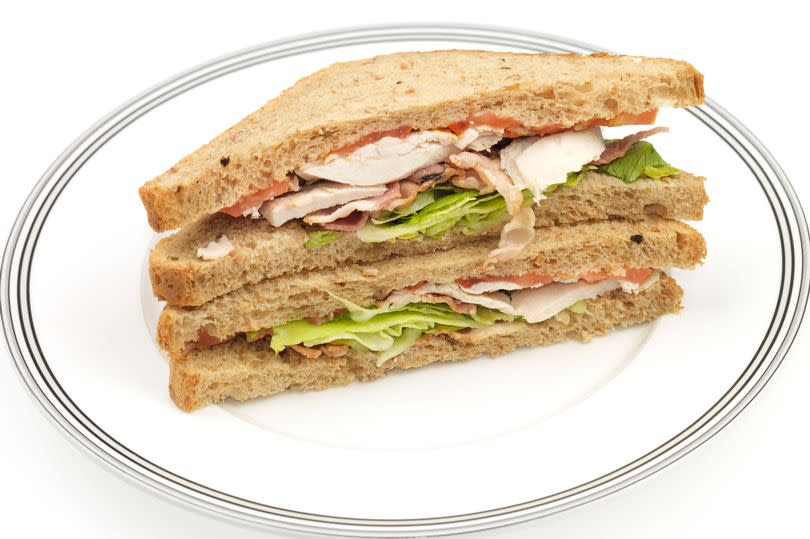E.Coli outbreak: How worried should we be as more than 200 cases reported in UK

In the wake of an E. coli outbreak, public health experts are raising alarms as numerous food items are pulled from shelves. A sweeping recall of sandwiches, wraps, and salads has been initiated after a surge in E. coli cases, with over 200 reported incidents.
Investigations have pinpointed that the bulk of the UK cases recorded between May 25 and June 4 belong to a single outbreak, likely tied to a nationally distributed food product. By June 11, the case count linked to this outbreak reached 211, with 42 percent of the 160 analysed cases resulting in hospital admissions.
The Food Standards Agency (FSA) said the latest recall is by manufacturer THIS!, which has recalled its vegan chicken and bacon wrap, sold only at WH Smith. The recall comes just days after manufacturers Greencore Group and Samworth Brothers Manton Wood recalled sandwiches, wraps and salads because of a potential link to the E.coli outbreak.
Darren Whitby, the FSA's head of incidents, described the recalls as a "precautionary measure" and stated: "This is a complex investigation, and we have worked swiftly with the relevant businesses and the local authorities concerned to narrow down the wide range of foods consumed to a small number of salad leaf products that have been used in sandwiches and wraps."
Experts have explained that E. coli bacteria, typically found in the gut and faeces of many animals, especially cows, and humans, is generally harmless.
However, it can occasionally cause symptoms such as diarrhoea (sometimes bloody), stomach cramps and fever, which can last from one to 14 days.
Medical professionals highlight that a small number of individuals with E. coli can develop a severe condition known as haemolytic uraemic syndrome (HUS). This can sometimes, albeit rarely, result in kidney failure and death.
Product recalls have been issued for certain sandwiches, wraps and salads sold at numerous major supermarkets and retailers including Sainsbury's, Asda, Aldi, Morrisons, Co-op, Boots, Tesco, One Stop and WH Smith.
So how can you prevent E. coli?

The NHS advises that E. coli, also referred to as STEC (Shiga toxin-producing Escherichia coli), can be contracted by consuming contaminated food like raw leafy vegetables or undercooked meat, touching infected animals, coming into contact with people who are ill, drinking water from an inadequately treated supply, or swimming or playing in contaminated ponds or streams.
Therefore, regular hand washing, maintaining clean food preparation areas and serving food at the correct temperatures, is crucial.
Steve Busby, a professor of biochemistry at the University of Birmingham who specialises in bacteria including E. coli, stated: "People need to understand the big picture about E.coli we all have it, and it's also in the intestinal tracts of cattle, chickens, dogs and all domestic animals and pets, and 99.99% of the bacteria are totally harmless."
"But just occasionally you do get a strain that has a genetic determinant that can cause harm."
He explained that cooking food and avoiding animal faeces usually protects us from harmful E. coli, but sometimes some get through our defences, as has happened in the current outbreak, which he says the FSA has done a "superb job" of managing.
"Most people who come across one of the harmless strains will probably not know about it, or you might spend the night in the bathroom," he says. "But if you're a child, if you're immunocompromised or elderly, that's when it can be life-threatening."
Is there anything to worry about?

"Should we be worried about the current outbreak? Yes, of course we're worried about the outbreak. We're always concerned about things that cause harm to humans, but we should be concerned and not worried, because it's not something we're going to get rid of. History tells us that 99.99% of these things are totally harmless you've got more chance of being run over by a bus than being killed by E.coli.
However, Dr Babak Ashrafi, a Superdrug Online Doctor, says the recent outbreak is a “significant public health concern”, particularly for vulnerable groups such as young children, the elderly, and those with weakened immune systems.
He says: “While there’s no need to panic, as public health authorities have taken swift action, issuing alerts and recalling potentially contaminated products, it’s important that people stay informed, are extra-cautious with regard to food handling, and remain vigilant for any symptoms over the coming weeks.”
Ashrafi explains that this particular strain of E-coli produces the Shiga toxin, which can lead to severe gastrointestinal symptoms such as intense abdominal cramps, bloody diarrhoea, and vomiting, usually within two to eight days of exposure.
But he stresses: “The greatest concern lies in the potential development of HUS, a serious complication posing a particular threat to young children and the elderly. HUS can lead to kidney failure and anaemia, which will require urgent care.”
How should an E.coli infection be treated?

Ashrafi suggests that while most cases of the infection resolve on their own, it's crucial to seek medical advice if you or a family member exhibit symptoms. He says the most important treatment is drinking plenty of fluids and taking rehydration solutions if needed, and resting.
However, he cautions: "Antibiotics are generally not recommended for treating STEC infections as they can potentially worsen the release of toxins and increase the risk of HUS".

 Yahoo News
Yahoo News 
